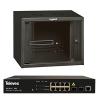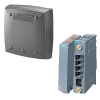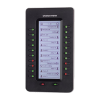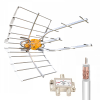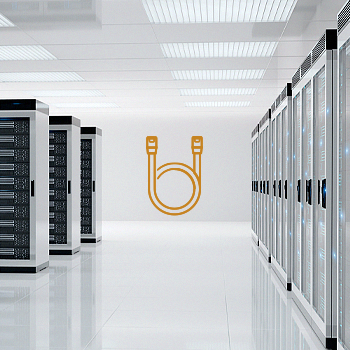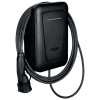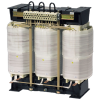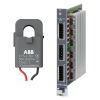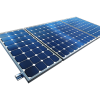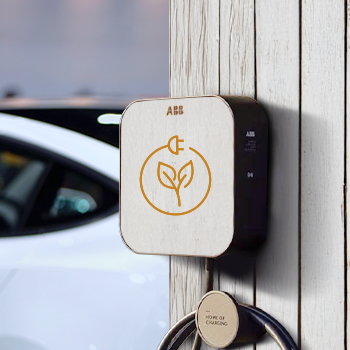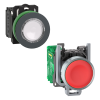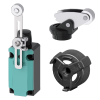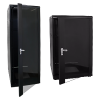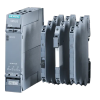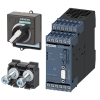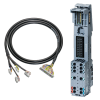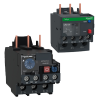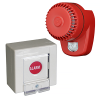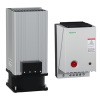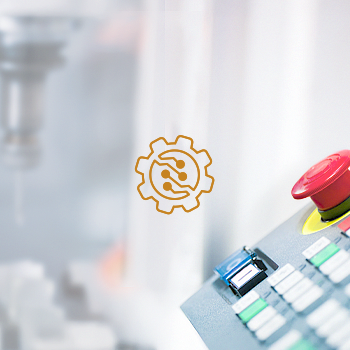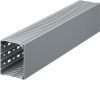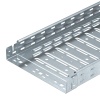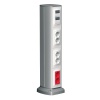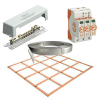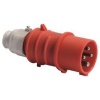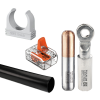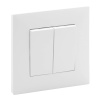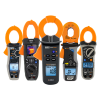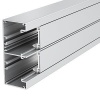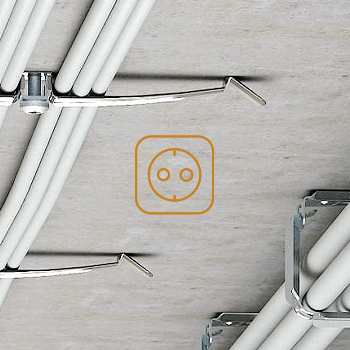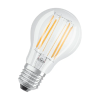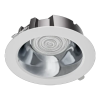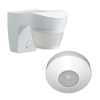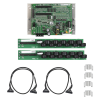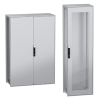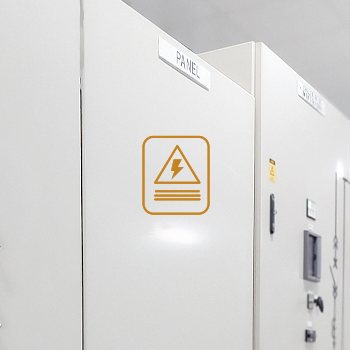The importance of UPS systems in integration into electrical panels
Descubra porque a integração de uma UPS num quadro elétrico é essencial para garantir continuidade de serviço, proteção de cargas críticas e conformidade normativa. Este artigo explica o papel técnico das UPS, os critérios de dimensionamento e as melhores práticas de instalação para quadristas, eletricistas e instaladores profissionais.
08 September 2025

The Importance of UPS in an Electrical Panel
The increasing digitization and automation of electrical systems demands not only continuous power availability but also its quality. For installers, electricians, and panel builders, the integration of uninterruptible power supply (UPS) systems into electrical panels is now a fundamental requirement in various types of installations.
The increasing digitization and automation of electrical systems demands not only continuous power availability but also its quality. For installers, electricians, and panel builders, the integration of uninterruptible power supply (UPS) systems into electrical panels is now a fundamental requirement in various types of installations.
Why is a UPS crucial in an Electrical Panel?
The increasing digitization and automation of electrical systems demands not only continuous power availability but also its quality. For installers, electricians, and panel builders, the integration of uninterruptible power supply (UPS) systems into electrical panels is now a fundamental requirement across various types of installations.
2. Service Continuity
In critical applications—such as hospitals, data centers, telecommunications systems, or continuous industrial processes—power loss, even for a few seconds, can compromise operations, cause equipment damage, or generate significant financial losses. A UPS provides immediate autonomy, allowing controlled switching to generators or network restoration.
3. Regulatory Compliance and Safety
UPS integration helps meet standards such as IEC 62040 (related to uninterruptible power supply systems) and recommended energy quality practices in electrical projects. Additionally, it ensures greater reliability in protecting people and equipment in high-criticality environments.
4. Operational Efficiency and Project Value
Proposing panels equipped with UPS demonstrates technical competence and adds value to the project, offering the end client a more robust, resilient infrastructure that is ready for future expansions.
The increasing digitization and automation of electrical systems demands not only continuous power availability but also its quality. For installers, electricians, and panel builders, the integration of uninterruptible power supply (UPS) systems into electrical panels is now a fundamental requirement across various types of installations.
1. Protection of Critical Loads
Programmable logic controllers (PLCs), automation systems, industrial servers, and measurement equipment are sensitive to voltage fluctuations. Integrating a UPS into the panel ensures stabilized power supply and prevents failures due to communication loss or unexpected restarts.
2. Service Continuity
In critical applications—such as hospitals, data centers, telecommunications systems, or continuous industrial processes—power loss, even for a few seconds, can compromise operations, cause equipment damage, or generate significant financial losses. A UPS provides immediate autonomy, allowing controlled switching to generators or network restoration.
3. Regulatory Compliance and Safety
UPS integration helps meet standards such as IEC 62040 (related to uninterruptible power supply systems) and recommended energy quality practices in electrical projects. Additionally, it ensures greater reliability in protecting people and equipment in high-criticality environments.
4. Operational Efficiency and Project Value
Proposing panels equipped with UPS demonstrates technical competence and adds value to the project, offering the end client a more robust, resilient infrastructure that is ready for future expansions.
Where to Integrate the UPS?
The selection and integration of a UPS into the panel depend on several technical parameters:
The selection and integration of a UPS into the panel depend on several technical parameters:
- Sizing: Should consider the total power of critical loads, power factor, and growth margin.
- Autonomy: Calculated based on the time required until the main power source is restored or the generator starts.
- Topology: The choice between offline, line-interactive, or double-conversion online UPS will depend on the criticality level of the installation.
- Physical Integration: Assessment of available space in the panel, ventilation requirements, heat dissipation, and accessibility for maintenance.
Conclusion:
Installing UPS systems in electrical panels represents an engineering solution that ensures power quality, operational continuity, and technical compliance. For panel builders and installers, mastering the selection and proper implementation of these systems is a competitive advantage and a reliability guarantee for clients.
At Nortécnica, we offer a complete range of UPS solutions and integration components, with specialized technical support for sizing and implementation in any type of project. Explore our range of UPS systems and choose the solution best suited for your installation:
Installing UPS systems in electrical panels represents an engineering solution that ensures power quality, operational continuity, and technical compliance. For panel builders and installers, mastering the selection and proper implementation of these systems is a competitive advantage and a reliability guarantee for clients.
At Nortécnica, we offer a complete range of UPS solutions and integration components, with specialized technical support for sizing and implementation in any type of project. Explore our range of UPS systems and choose the solution best suited for your installation:



